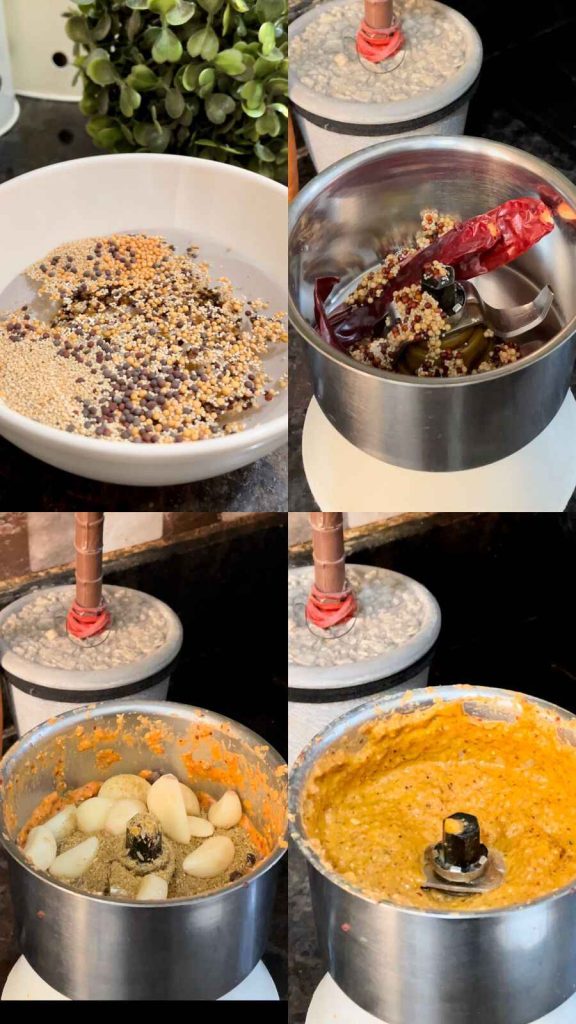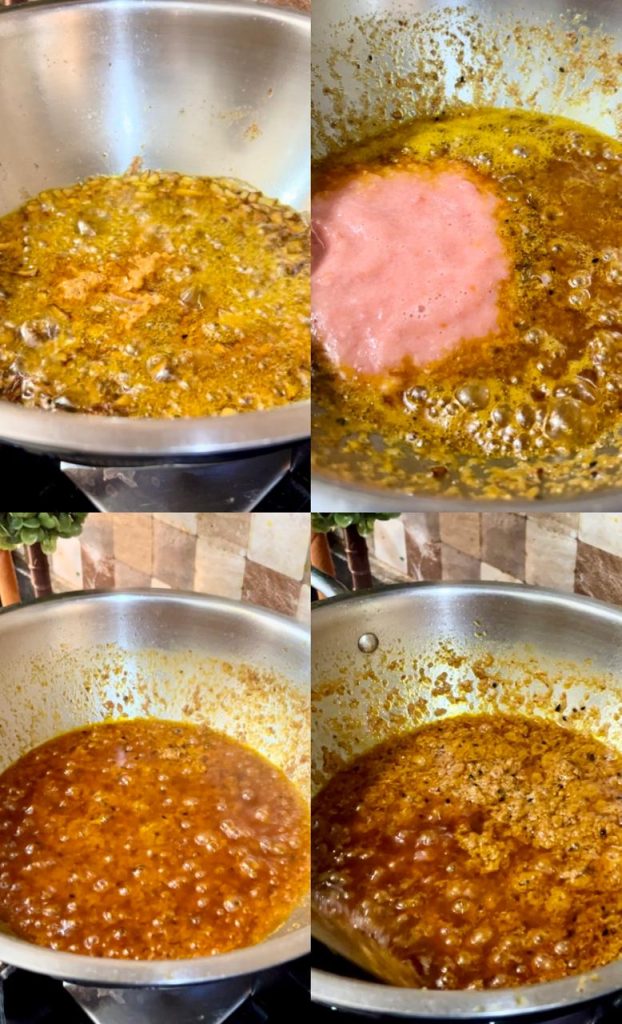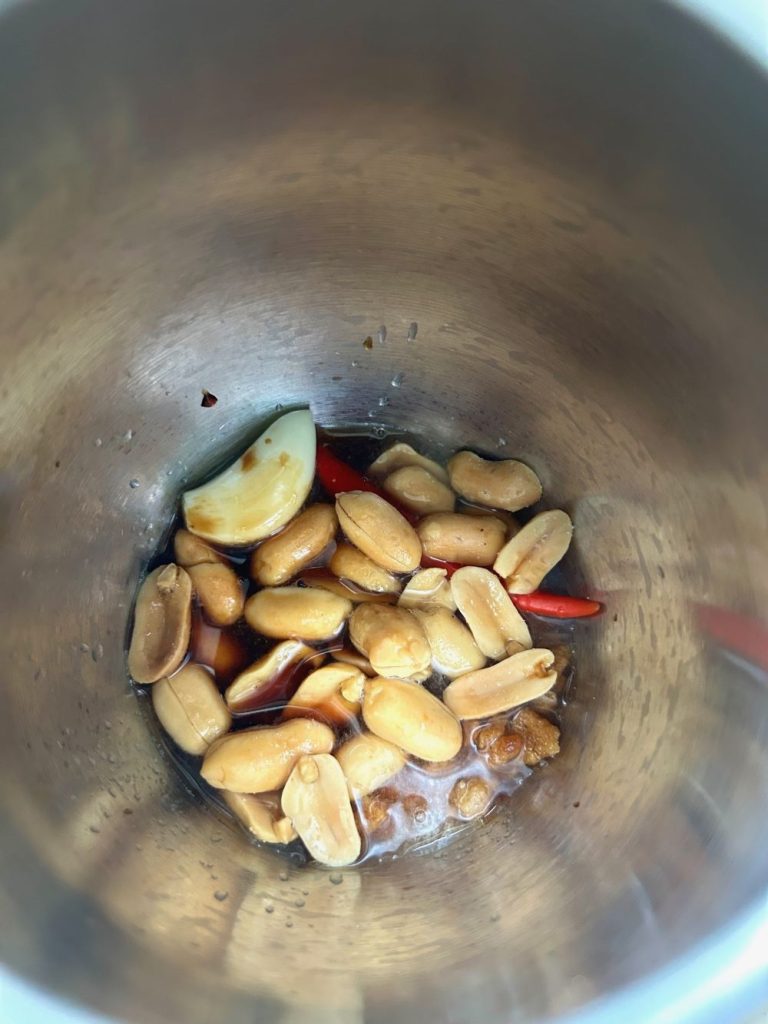
My hometown in Jharkhand has a significant influence of Bengali cuisine, and my inclination towards Bengali dishes is very strong. Among them, my favourite is Shorshe Bata, a Bengali-style fish curry. The rich flavor of mustard paste combined with the burst of spices in every bite is simply amazing. This dish is a perfect blend of earthy and spicy notes. The creamy texture of the mustard paste, paired with the tender fish, makes for an unmatchable taste. If you’re a fan of robust flavors, this recipe is a must-try.
Ingredients:
To Marinate Fish:
- 1tbsp turmeric powder
- 1tbsp red chilli powder
- 1 tbsp salt
For Gravy Masala
- 4 to 5 pieces Rohu Fish
- 1tbsp black mustard seeds
- 1tbsp yellow mustard seeds
- 3-4 whole red chillies
- 5-6 garlic cloves
- ½ tbsp black peppercorn
- ½ tbsp cumin seeds
- ½ tbsp of turmeric
- 1 Chopped onion
- 2 tomatoes( paste)
- 2 green chilies for garnishing
- Chopped coriander leaves for garnishing
- 1/4 cup mustard oil
- 1 tsp nigella seeds
Method:
Soak the black mustard seeds, yellow mustard seeds, and poppy seeds in water for 20 minutes. After soaking, drain the water and blend the seeds with whole red chilies, garlic cloves, black peppercorn, and cumin seeds, coriander seeds and turmeric powder to make a fine paste.

Heat mustard oil in a pan until it starts smoking. Fry the marinated fish pieces until they turn golden brown. Remove and set aside.

In the same oil, add nigella seeds and one whole red chilli let them splutter. Add the chopped onion and sauté until golden brown.

Add the prepared mustard paste. Add tomato paste Cook until the oil separates from the masala.

Add water and let it simmer for a few minutes, boil until desired consistency. Add the fried fish pieces to the gravy and boil again for 1 minutes.

Serve hot with pipping hot rice. The sharpness of mustard oil and the zing from the Dijon mustard paste enhance the dish’s vibrant

I hope you enjoy making and savoring this delicious bengali style Rui Shorshe Bata. Please try it out and share your feedback. Your comments and suggestions are always welcome!
I would love to see your creations. If you tried this recipe , just click a pictures and tag us on @masala.monk or use the hashtag #MasalaMonkRecipe and share on Instagram and Facebook. Happy Cooking!
































